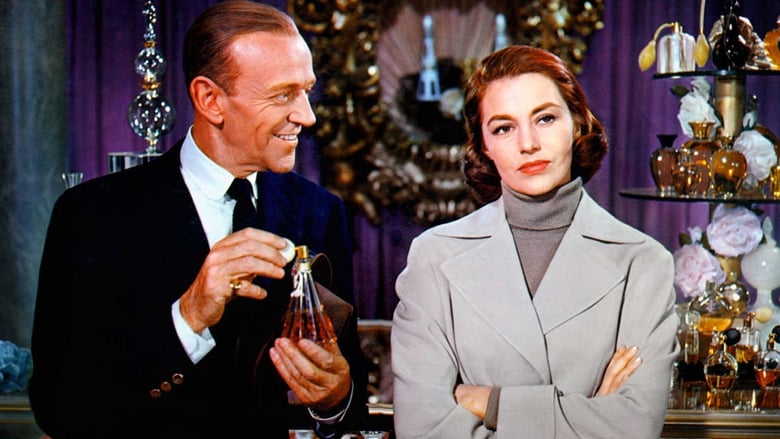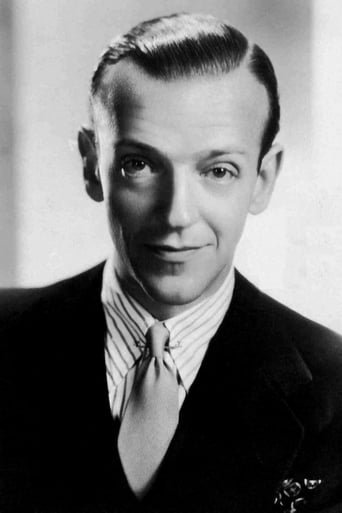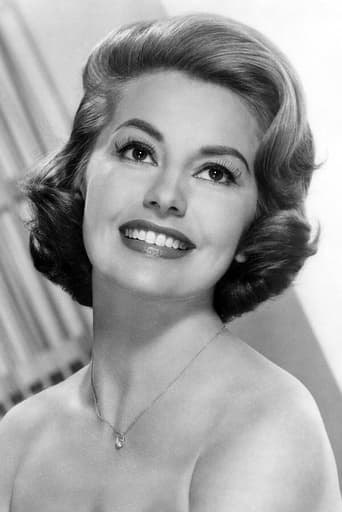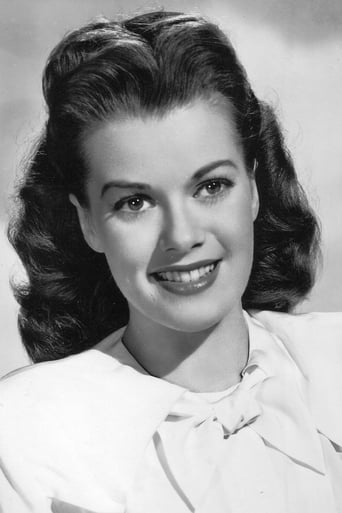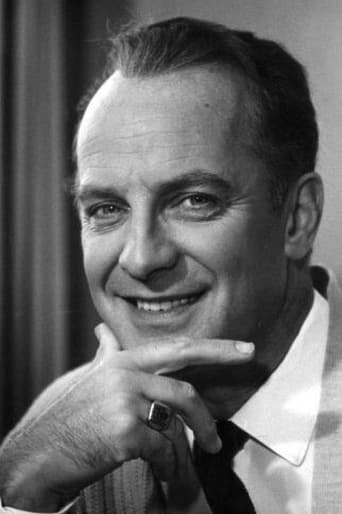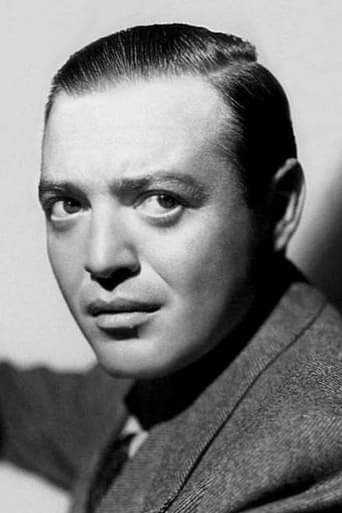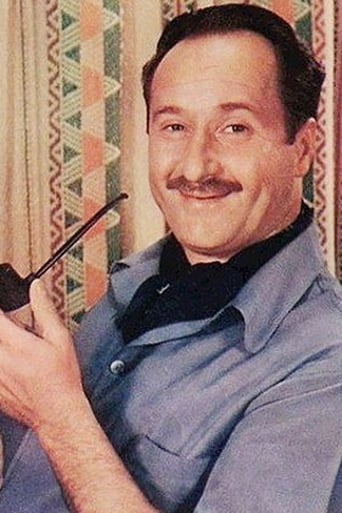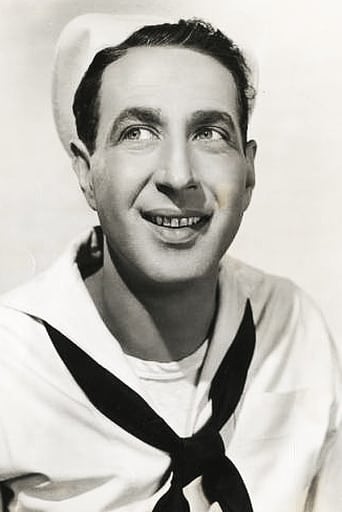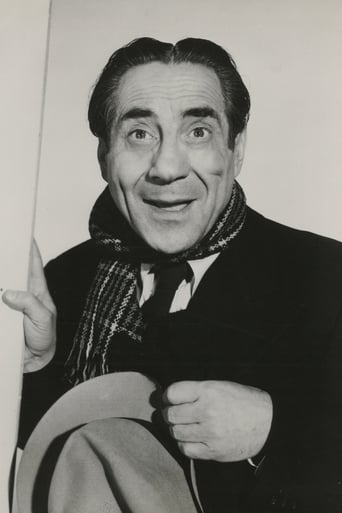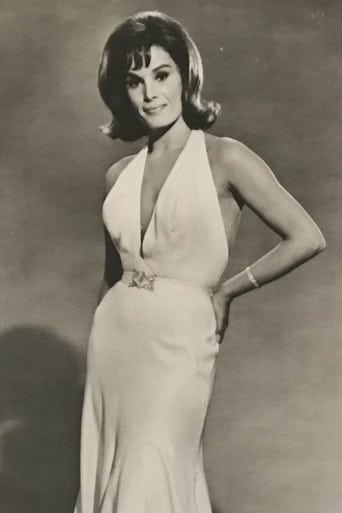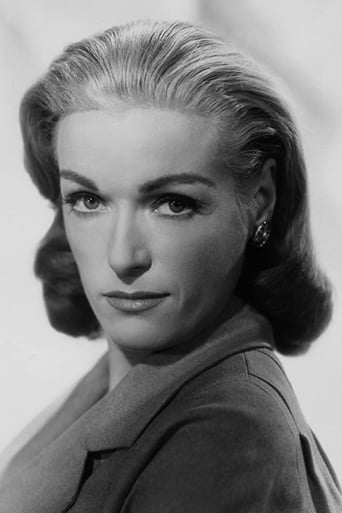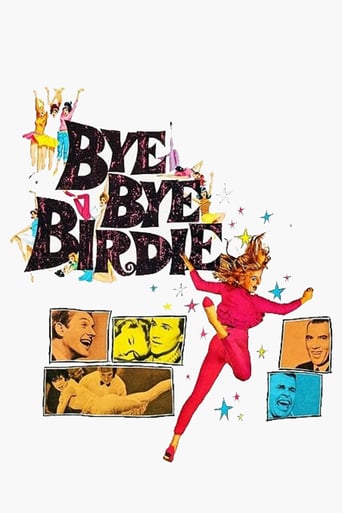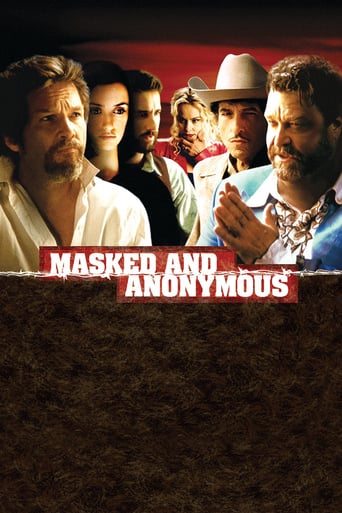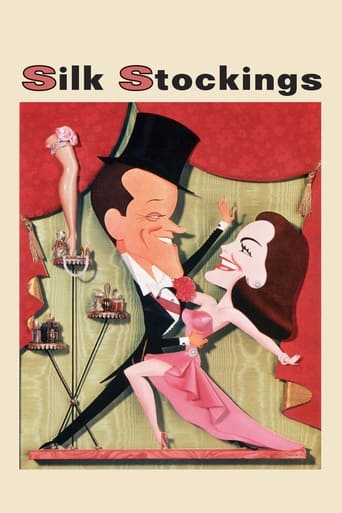
Silk Stockings
July. 18,1957 NRAfter three bumbling Soviet agents fail in their mission to retrieve a straying Soviet composer from Paris, the beautiful, ultra-serious Ninotchka is sent to complete their mission and to retrieve them. She starts out condemning the decadent West, but gradually falls under its spell—with the help of an American movie producer. A remake of Ninotchka (1939).
Similar titles
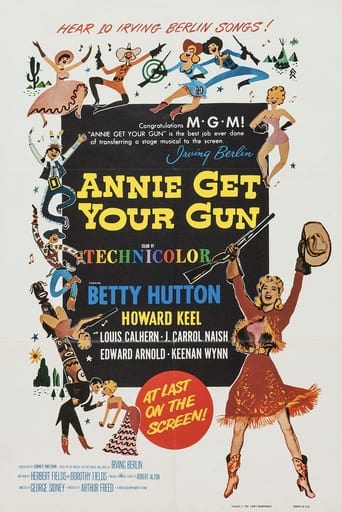
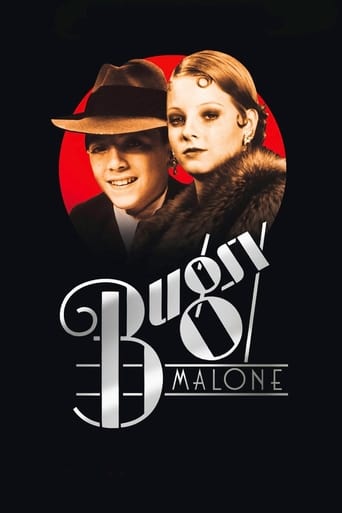
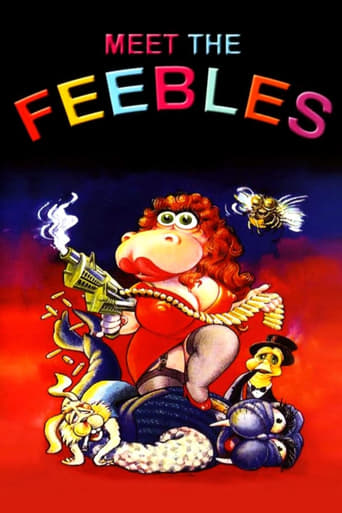
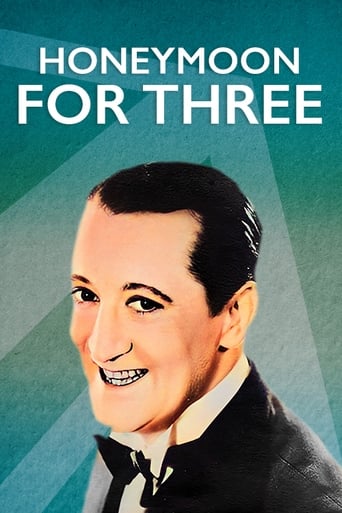
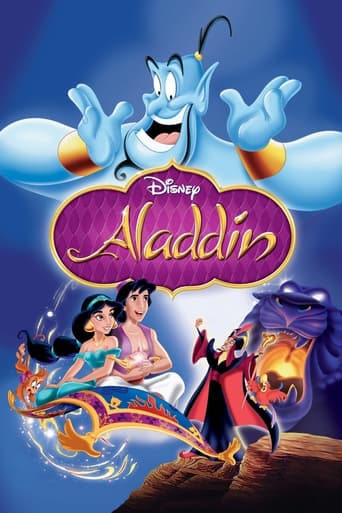

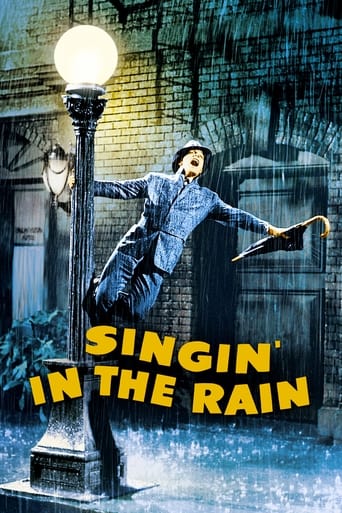

You May Also Like
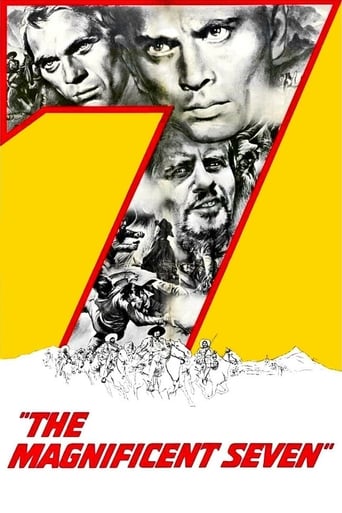
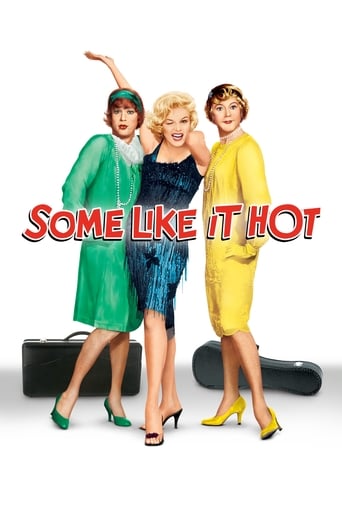
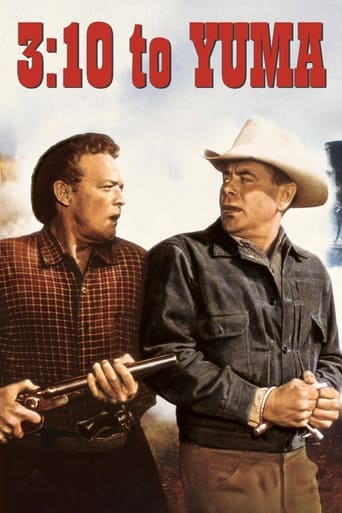
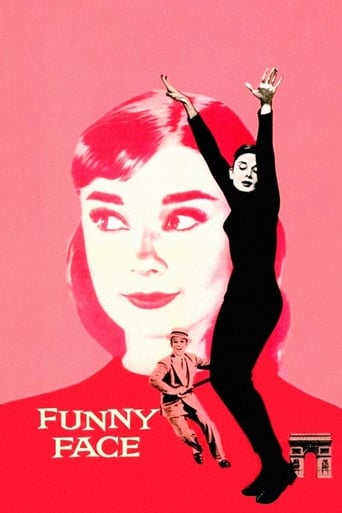
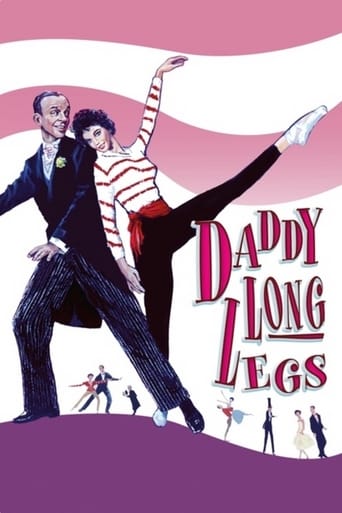
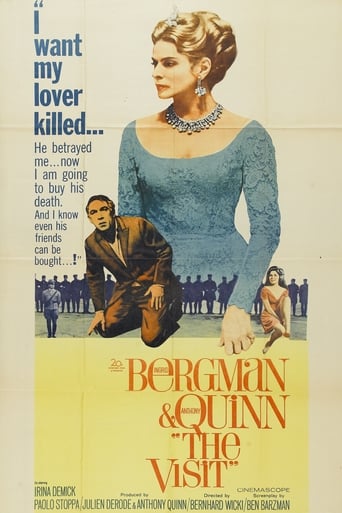
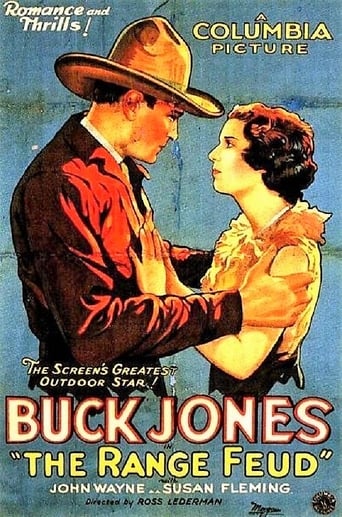
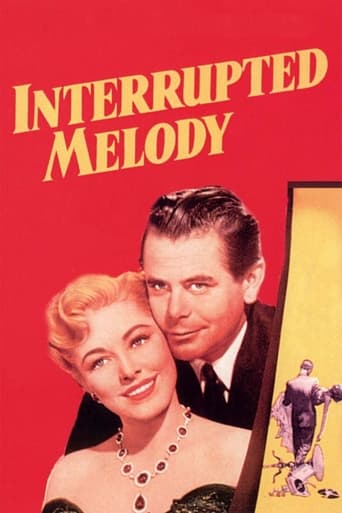

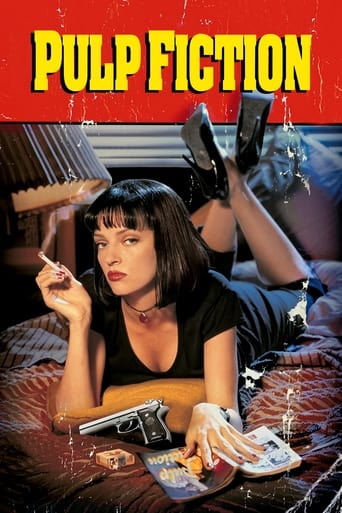
Reviews
Excellent but underrated film
if their story seems completely bonkers, almost like a feverish work of fiction, you ain't heard nothing yet.
I enjoyed watching this film and would recommend other to give it a try , (as I am) but this movie, although enjoyable to watch due to the better than average acting fails to add anything new to its storyline that is all too familiar to these types of movies.
Like the great film, it's made with a great deal of visible affection both in front of and behind the camera.
Copyright 13 May 1957. A Metro-Goldwyn-Mayer picture. New York opening at the Radio City Music Hall: 18 July 1957 (ran six weeks). U.K. release: 1 August 1957. Australian release: 25 July 1957. 10,567 feet, 117 minutes. SYNOPSIS: Hollywood producer in Paris (Fred Astaire) hires long-hair Russian composer (Wim Sonneveld) for his latest trashy musical starring raucous ex-swimming star (Janis Paige), much to the dismay of Moscow commissar (George Tobias). An envoy (Cyd Charisse) is sent to Paris to break the contract and bring the errant composer back home. NOTES: Mamoulian's final film, this re-make of "Ninotchka" (1939) (which starred Greta Garbo and Melvyn Douglas), was M-G-M production number 1709. It started shooting 7 November 1956 and wrapped up 31 January 1957. Negative cost: $1,853,463. Initial rentals gross: a most satisfactory $4,417,753.COMMENT: Dazzling direction by Rouben Mamoulian (one of the few Hollywood artists to use CinemaScope creatively) more than makes up for a somewhat tepid script in this generally lackluster remake of the far more trenchant and much wittier "Ninotchka". The Porter score is reasonably entertaining, yes, but it's not Porter at his ravishing best – not by a long shot. Mind you, the dancing is agreeably energetic nonetheless, but even here our enjoyment strikes a setback in that Fred Astaire is often photographed so unattractively. Cyd Charisse and Peter Lorre also have reason to complain, although Cyd is supposed to look dowdy for most of the time (but is that any reason to make her close-ups so unflattering?), while Mr. Lorre did accept the role knowing full well that he'd be playing the buffoon. Fortunately, the wonderful Janis Paige (who unaccountably disappears from the action for long stretches soon after her great introduction) does have two ebullient solos as well as the rousing "Stereophonic Sound" which she shares with Astaire. The movie is now available on a terrific DVD from Warner which sports some excellent extras, including an interview with Cyd Charisse, plus two marvelous shorts. One of these, "Paree, Paree" (1934), based on Cole Porter's "Fifty Million Frenchmen", demonstrates exactly what is wrong with the overlong "Silk Stockings." In two delightful reels, the short focuses firmly on the songs, rather than the silly story. In other words, the story is just a hook for the songs – which is the way it should be!.
I'd like to start off saying something unexpected. I was struck how much the basic plot resembles that of the previous musical "Belle of New York", also starring Fred, with another famous dancer: Vera Ellen, in Cyd's role. They both involve Fred taking on the challenge(why?) of trying to break through the thick ice of a beautiful, but emotionally repressed, young woman, who is always seen wearing a drab uniform. True , Cyd's character (Ninotchka) was a much harder case to crack, but eventually, Fred succeeded in both cases. In consequence, the singing(dubbed) and dancing of Vera-Ellen and Cyd is delayed compared to Fred's, and it takes time for their characters to fully warm up to Fred's lifestyle, including exuberant dancing. They both get a dance without Fred, in their bedrooms, when they first change from their drab uniforms into some sexy female clothing(including silk stockings). In both films, it looks like they will soon marry Fred at one point. But the woman then becomes disenchanted by something, and partially reverts to her old self until the finale, when their imminent marriage is again hinted. While the earlier film was set in turn of the century NYC, this film is set in contemporary Paris and sometimes Moscow. However, the combination of Fred and Janet Blair impart a significant American flavor to the film. Thus, two musical numbers lampoon the recent pop phenomenon of rock and roll, or several film enhancement technologies commonly adopted in recent times to try to lure potential customers away from their small- screen B&W monaural TVs, back into movie theaters. The present film is much longer than the earlier film, with a more interesting and complicated plot and more significant characters. However, we are stuck through most of it, even to the end, with Cyd's unpleasant arrogant robotic monotone Soviet persona, occasionally replaced by Janet Blair's blasé personality or snippets of Cyd's westernized personality. I would rate the songs in the earlier film as being, on the whole, better, while the dancing is more stimulating in this film. Cyd's solo dancing, in the several opportunities she is given, is especially interesting. There are an endless number of jabs at the stereotypical repressed lives of Soviets, half-truth Soviet propaganda about capitalism, and paranoia, to counter Ninotchka's constant criticisms of 'decadent' capitalism, as she saw it or had been indoctrinated to expect. At one point, Ninotchka, composer Boroff, and the 3 stooge-like commisars sent to bring him back from Paris, have returned to Moscow, reminisce about how they miss their brief stay in Paris, then stage an exuberant dance to music recently composed by Boroff, while singing that they have the "Red Blues": a nifty title. Comically, during this dance, a Soviet bureaucrat walks through the room twice, inducing all to revert to pretending they are discussing the virtues of communism over capitalism. Since Fred can't get a visa to visit Russia, he thinks up a trick to induce the turn of all to Paris...The overall theme of the film clearly is that the Soviet attempt to remake human nature to be interested only in basic survival mode and to only serve the interests of the state is flawed and will ultimately be rejected by real people.In the later part of the film, Ninotchka seemingly develops a split personality, occasionally succumbing to Fred's attempt to westernize her thinking and behavior and seduce her, but then reverting to her monotone Soviet personality. Seems like she mostly lets down her guard after she's had some Champagne. In the finale, she tears up her second plane ticket back to Moscow, after learning that Fred still wants to marry her, thereby presumably proving that even the seemingly most loyal adherents to the Soviet state, given the chance, will choose to live in a western country.The 3 clownish commisars sent to bring back the reluctant -to-leave-Paris composer Boroff rather remind me of the 3 sailors on leave in "On the Town". Jules Munshin served as one of the 3 in both groups, being much taller than any of the others. The choice of Peter Lorre and Joseph Buloff as the other two seems odd, as neither was musical and the singing of both was dubbed. Would have been interesting to have the Marx Brothers or 3 Stooges at their height in their places. But would have been considered overkill, I'm sure.I wonder why the screenwriters decided to subtly deride Esther William's acting ability in clearly casting Janis Paige in her likeness, with the implication that it was doubtful if she could carry a film that lacked her swimming ballets. Interestingly, Esther's long contract with MGM had rather recently been terminated. Seldom used Rouben Mamoulian, as director, was a controversial choice. His last film musical('48) was an expensive box office flop for MGM. However, he had directed some prior successful films , as well as the stage versions of "Oklahoma" and "Carousel". More significantly, he spent his youth in Georgia, where Stalin had also spent his youth. Thus, it was felt he could help provide a more authentic presentation of the Soviets.The non-musical "The Iron Petticoat" and "Jet Pilot", with similar themes of defecting Soviet women, were released about the same time, but were box-office flops, compared to the moderate success of this film.
Unlike Fred Astaire's other 1957 release, Funny Face, Silk Stockings was not filmed on location in Paris. The film tells us that "Paris loves lovers", but never really shows it. Granted, very few of M-G-M's CinemaScope musicals were shot on location, after the first one (Rose Marie, 1954). Silk Stockings was no exception - though I have no idea if anyone even wanted to shoot it on location. Most of it takes place indoors. Not unlike the original, Ninotchka - but that was a more talk-oriented comedy. At any rate, elegant decor, costumes, and dialogue are relied upon here to convey the magic and romance of the setting as dictated by the script. Sometimes that works, and sometimes you may find yourself feeling cooped up, wishing you could see some of this immortal city everyone keeps singing and talking about. As Ninotchka, Cyd Charisse had the right looks for the part. As an actress, it's a stretch for her, requiring character acting, even a Russian accent. She pulls it off, but not brilliantly. Except when she dances - then she's Ninotchka to the life. It's one of her best roles as a dancer, and she's thrilling. As American producer Steve Canfield, Fred Astaire is not really on entirely familiar ground, either. The part seems a little aggressive for him. But he does his usual first-class job. Rouben Mamoulian - the director of the brilliant Love Me Tonight, and other early, innovative sound films - had his final hit with this one. It's not as creative as some of his other musicals, but overall it's a fine show.
With the passing of Cyd Charisse last week at age 86, it's worth seeking out what is probably her finest work on celluloid. As an actress, she was bland. As a singer, she was dubbed (this time by the sonorous-sounding Carole Richards). But as a dancer, she was extraordinary. Along with Vera-Ellen, the ballet-trained Charisse was in the top echelon of the female dancers MGM showcased during the studio's golden years of which this film is one of its final stops. The clearest evidence of this claim can be found in the title tune when she dances with beauty and precision elegantly changing from her drab street clothes into silk and satin. It's a remarkable number, no small feat since her co-star is Fred Astaire. Directed by early musical maven Rouben Mamoulian in what turned out to be his last film, the movie also marks Astaire's swan song as a musical comedy leading man. Symbolically, he smashes his top hat at the end of his final solo number, "The Ritz Roll and Rock". The wear barely shows in his dancing where he pulls off some of his most acrobatic numbers, but other than the professionalism of the two leads, the inspiration seems sadly missing.The film is a partial remake of Ernst Lubitsch's 1939 classic comedy, "Ninotchka" - in fact, some scenes are repeated verbatim - although certain elements have been altered to accommodate Cole Porter's musical score. This musical translation first showed up on Broadway two years earlier, but further revisions have obviously been made to tailor the story to the dancing talents of the leads. Charisse has the unenviable task of stepping into Greta Garbo's shoes as top Soviet envoy Ninotchka Yoschenko, who is sent to Paris to retrieve three lesser envoys swept up by the City of Lights. They had already botched their mission to lure famous Russian composer Peter Boroff back to the mother country. At the same time, American movie producer Steve Canfield wants Boroff to score his next picture, a musical bowdlerization of Tolstoy's "War and Peace" starring comically curvaceous Peggy Dayton, a parody of an Esther Williams-style swimming star whose been in the pool too long. As Dayton uses her feminine wiles to entice Boroff, Canfield tries to seduce Ninotchka, a far frostier proposition though the eventual thawing is inevitable. Porter's music has that effect or so we are led to believe.Playing another variation on the worldly photographer he played in the same year's "Funny Face", Astaire is still at the top of his game, but his dance numbers are less elegant and appear markedly shorter than usual here. Charisse cannot compare to the legendary Garbo when it comes to line readings as a stoic communist. However, her dancing truly transcends not only the title tune but also "The Red Blues", an impressive ensemble number showcasing Charisse in a variety of dance styles, and the two duets with Astaire to "All of You" - the first a romantic defrosting of Ninotchka and the second a jauntier, rhythmic pas-de-deux. I wish the rest of the film was as good, but sadly, the energy wavers and the pacing flags during its 117-minute running time. The rest of the cast is serviceable, in particular, Janis Paige on familiar ground as Peggy (nicely paired with Astaire on the energetically cynical "Stereophonic Sound") and George Tobias as the deadpan Soviet commissar. Peter Lorre ("M") and Jules Munshin (Ozzie in "On the Town") show up as two of the bumbling envoys. The 2003 DVD has some interesting extras beginning with a ten-minute featurette featuring a 2003 interview with the still-elegant Charisse in "Cole Porter in Hollywood: Satin and Silk". Because of the Porter tie-in, there is also a 1934 Bob Hope short, "Paree, Paree", a silly musical comedy with Hope wooing singer Dorothy Stone. Also included is the original theatrical trailer, as well as "Poet and Peasant Overture" with Alfred Wallenstein conducting the MGM symphony orchestra playing the Franz Von Suppe piece as an overture to the movie.
Top Streaming Movies











